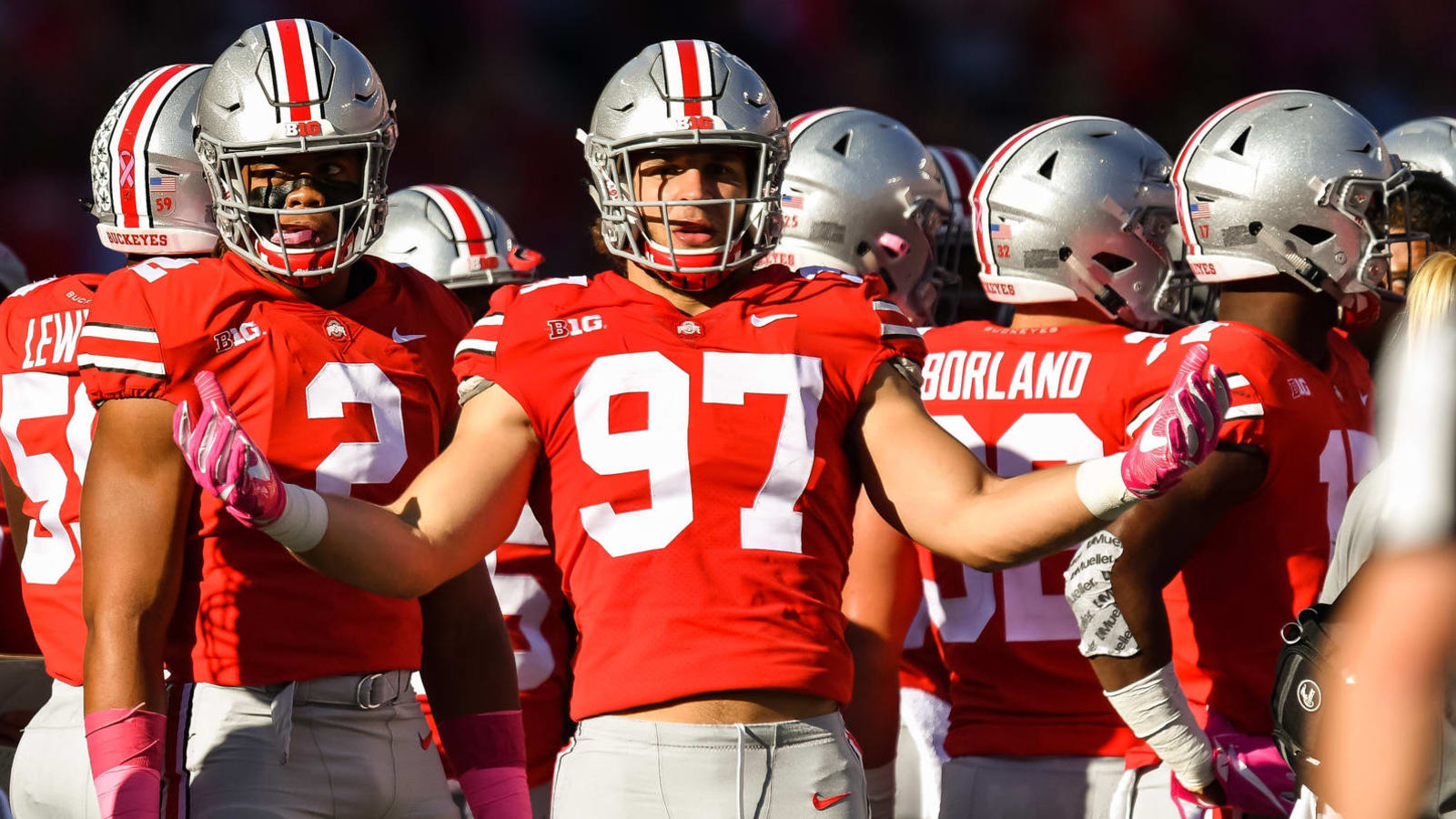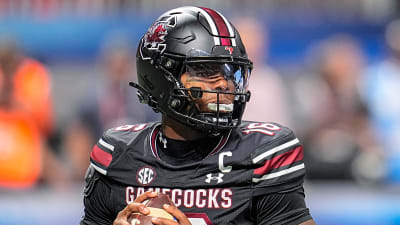
Nick Bosa and the ongoing disruption of college football
At the end of the 1968 season, the men who ran the nation’s athletic programs decided they had a problem. Athletes, particularly football players, were being disruptive and defying the established order. They were growing beards, refusing to get haircuts and embracing the spirit of protest that had come to define the era.
This was no good, so the NCAA changed the rules. Scholarships could be stripped from players if they were guilty of “manifest disobedience.” What exactly did that mean? It was nebulous, but it essentially was aimed to be a line in the sand — a declaration that college football would somehow stand above the cultural currents that had altered virtually every other aspect of American life in the 1960s. “Disruption,” declared NCAA president Walter Byers, was the problem.
This is the eternal underlying struggle that’s long defined college football: Because it is almost impossible to detach from our collective sense of nostalgia, the powers-that-be have long felt an obligation to shield its image from the concerns of the real world. College football was a dictatorial sport that sold itself on a collectivist “team-first” ideal, and that was cool with us as long as it meant we could watch the Iron Bowl in peace.
But something interesting has occurred over the course of the past few years, and it feels as if it reached a tipping point this week when yet another player exercised his rights — and no one seemed to blame him at all.
In a way, everything that happened with Ohio State defensive lineman Nick Bosa was a glowing red herring. Bosa, who could very well wind up as one of the top picks in the NFL Draft, was, as Sports Illustrated’s Michael Rosenberg reported, unlikely to return safely from his surgery on his core injury in time to play in the postseason, which means his college career was almost certainly over before he declared it as such.
This was not a matter of an athlete somehow abandoning his teammates or disappointing the university that recruited him. No, this was a matter of an athlete embracing an inevitable reality. And Bosa’s announcement didn’t even arouse much of the faux-outrage that fuels the sports-debate engine, both online and on television. Instead, most reasonable people said of Bosa's decision, "That seems like a smart thing to do."
This was a football player making a common-sense decision to preserve his future rather than rush back in an attempt to play in a situation in which he could risk that future. That kind of choice is no longer viewed as an affront; that kind of choice has now quietly tipped into the mainstream. The people criticizing decisions like these are now generally either blindly partisan fools or purposefully contrarian bozos who make their living embracing debate. The rest of us — and even many of the coaches and administrators who run the sport — have come to realize that football is a taxing and time-consuming sport to play, and that careers are short and injury-plagued and that maybe the athletes who play it deserve some flexibility when making choices that will affect their futures.
It’s been a couple of years now since high-profile players like Leonard Fournette and Christian McCaffrey sat out of their schools' bowl games to avoid exacerbating injuries that might have impacted their NFL draft stock. The concern was that this somehow signaled a societal sea change; that this would somehow “disrupt” the team dynamic as we know it. This was essentially the same argument being made, under different pretenses, back in 1968.
In the same way, Clemson quarterback Kelly Bryant’s decision to transfer after he lost his starting job aroused some brief rhetoric centered around the same point: that his “selfish” decision would somehow disrupt Clemson’s quest for a national championship. But it didn’t because Clemson coach Dabo Swinney handled it well — in large part, I imagine, because he understood how public perception of these things had altered — and Bryant handled it well. And in the end, it seemed to make sense for all parties involved.
That’s where we are now. The disruption has taken hold, and the rational majority doesn’t seem to care all that much anymore. All we’ve done is even out the balance of power, and all it’s done is make college football that much better.
More must-reads:
- Nick Bosa to focus on draft, not return to Ohio State
- Bold predictions for college football's second half
- The 'World Series single-game K leaders' quiz
Breaking News
Trending News
Customize Your Newsletter
 +
+
Get the latest news and rumors, customized to your favorite sports and teams. Emailed daily. Always free!








